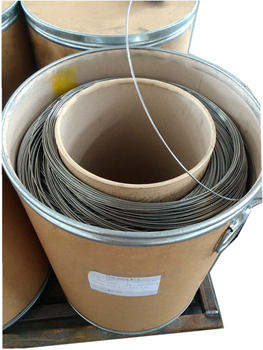
Privacy statement: Your privacy is very important to Us. Our company promises not to disclose your personal information to any external company with out your explicit permission.
Wear-resistant steel pipe mainly including wear-resistant straight pipe, elbow, tee, small and large head, square and round joints, reducer and other structural parts, is a kind of pipeline mainly used for pneumatic, pumping slurry and other abrasive material transportation. Because the transport medium generally has the characteristics of high hardness, fast flow rate, large flow rate, etc., and in the process of conveying long-term continuous impact, wear, corrosion and other effects on the pipe wall, so that the pipe fatigue resulting in gradual wear through, and the application of wear-resistant pipe is the solution to this problem. The following is a brief summary of the structure, performance, types, applications and specifications of wear-resistant pipes.

Wear-resistant pipe is a composite pipe with an internal wear-resistant layer for severe wear parts of the project, which plays a role in energy saving, wear resistance and corrosion prevention.
Self-protection HP open arc overlay Flux Cored Welding Wire
1. Protection medium: no protection medium, self-protection open-arc welding
2. Surfacing layer metal performance: good resistance to low impact, excellent wear-resistant material wear performance
3. Operability/technology: stable arc, good forming, small spatter, high utilization
4.Applicable base material: low carbon steel material
5. Overlay thickness limit: It is recommended that the thickness of the overlay layer should not exceed 15mm
6. Machinability: not available for turning, milling, grinding
7. Optional diameter and packaging form: Ф 2.8~3.2, 50KG tray or 250kg drum
Use: Used for overlay welding in light impact or no impact under strong abrasive wear workpiece, such as wear-resistant liner, chute, material bell, screw conveyor impeller and mining machinery and
Screw conveyor impeller and mining machinery and building materials machinery, etc.

Other precautions
1. Pay attention to the control of interlayer temperature during the welding process.
2. It is recommended that the thickness of overlay layer should not exceed 50mm.
3. No machining is allowed after overlay welding.
June 01, 2023
October 14, 2022
October 14, 2022
May 23, 2022
May 19, 2022
이 업체에게 이메일로 보내기
June 01, 2023
October 14, 2022
October 14, 2022
May 23, 2022
May 19, 2022

Privacy statement: Your privacy is very important to Us. Our company promises not to disclose your personal information to any external company with out your explicit permission.

Fill in more information so that we can get in touch with you faster
Privacy statement: Your privacy is very important to Us. Our company promises not to disclose your personal information to any external company with out your explicit permission.